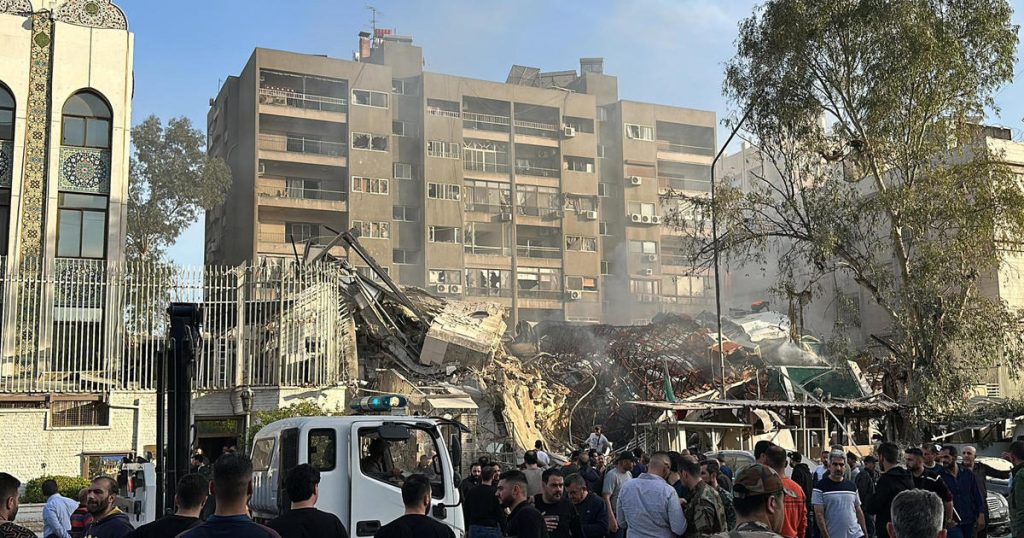Israel and the U.S. are preparing for potential retaliation from Iran following an Israeli strike on an Iranian consulate in Syria. The strike, carried out by Israel on Monday, resulted in the deaths of a few leaders of Iran’s Islamic Revolutionary Guard Corps, according to the Pentagon. In response, Iranian officials are planning a retaliatory attack using a combination of Shaheed loitering drones and cruise missiles. The timing and target of the attack are currently unknown, but there are concerns that it may target an Israeli diplomatic facility as a proportional response to the Damascus strike.
There are various symbolic dates associated with the end of Ramadan that could serve as a possible timeframe for the Iranian retaliation. For example, April 5 is Al-Quds day, a day expressing support for the Palestinian people, while April 6 is considered “The night of power,” a significant night in Islamic tradition. However, intelligence estimates suggest that the attack is more likely to take place next week. Another important aspect to consider is where the drones and missiles will be launched from – whether from Iraq or Syria, which could allow for plausible deniability by Tehran, or from Iranian territory directly.
A public funeral was held in Tehran for the seven IRGC members killed in the suspected Israeli strike in Damascus, including two generals. During the funeral, the overall commander of the IRGC, Gen. Hossein Salami, warned Israel that it “cannot escape the consequences” of assassinating Iranian military officers. While no further details were provided on how or when Iran might retaliate, there is growing concern over potential escalation. To prevent Iranian retaliation on sites linked to the U.S., Biden administration officials have emphasized that the U.S. had no prior knowledge of the Israeli strike. President Biden assured Israeli Prime Minister Benjamin Netanyahu of U.S. support in defending against threats posed by Iran.
The ongoing tensions between Israel, the U.S., and Iran are raising fears of a potential regional conflict. Israel has made public warnings of retaliation in response to threats from Iran, further escalating the situation. The possibility of an Iranian attack on an Israeli facility would bring the region closer to the brink of war. As the situation continues to unfold, both sides are on high alert and monitoring developments closely. It remains to be seen how events will play out in the coming days and whether efforts to de-escalate the situation will be successful.
In response to the escalating tensions, the U.S. and Israel are closely coordinating their actions and responses to potential threats from Iran. President Biden has assured Israel of U.S. support in defending against Iranian threats and has emphasized the need for collective action to address the situation. The delicate balance of power in the region is being tested, and efforts are being made to prevent further escalation. As both sides prepare for potential retaliation and conflict, the international community is closely watching the developments and hoping for a peaceful resolution to the crisis.


